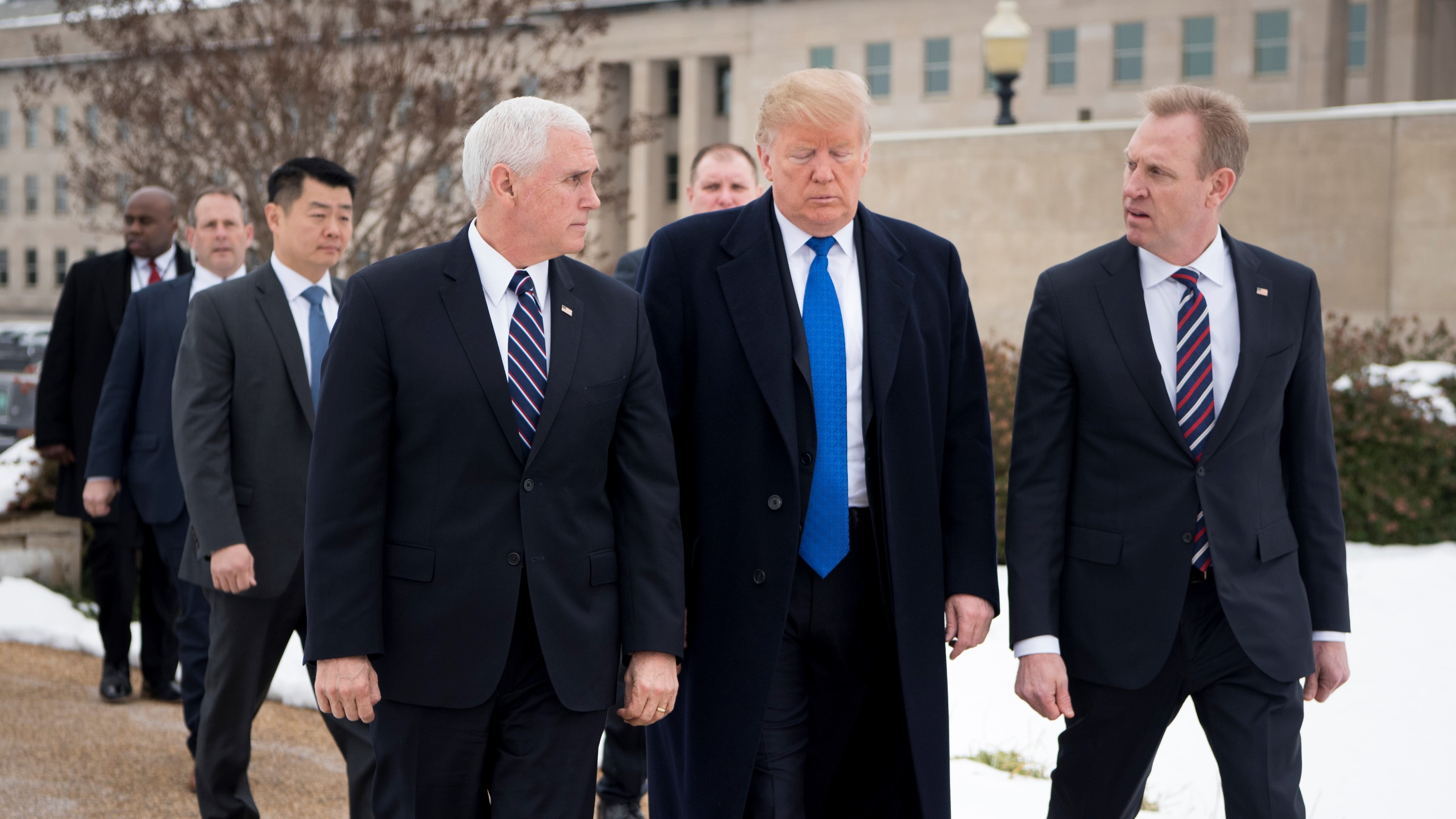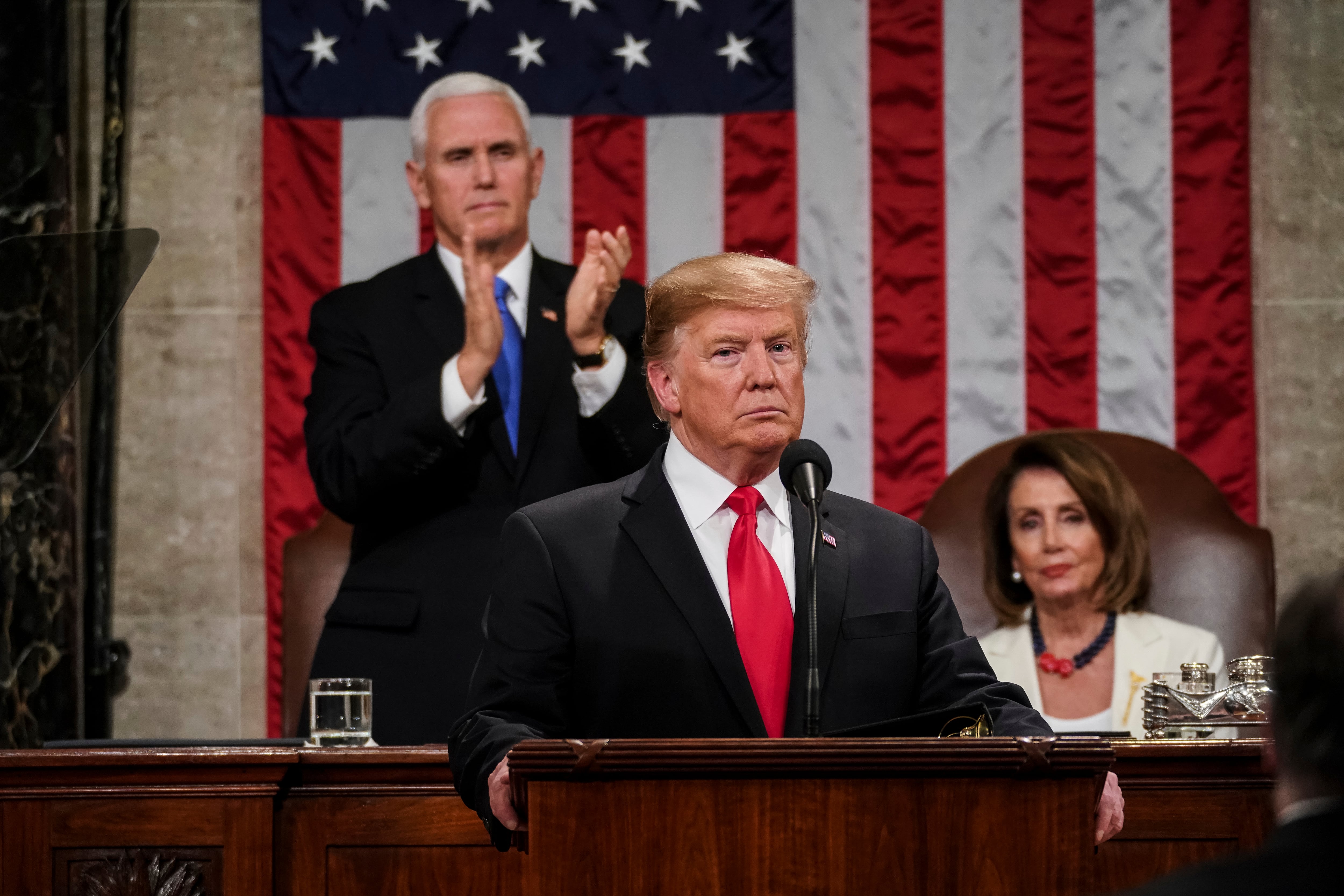WASHINGTON — The U.S. is set to send its largest congressional delegation yet to the 2019 Munich Security Conference, including House Speaker Nancy Pelosi and Vice President Mike Pence, but it could all fall apart if talks to avert a government shutdown fail.
The annual meeting of world leaders and experts in the Bavarian capital, from Feb. 15-17, is set to host the most U.S. lawmakers since the conference’s inception in 1963. But several lawmakers told Defense News last week they will cancel if Congress cannot reach a deal on President Donald Trump’s demand for a border wall and legislation to fund the government.
Among the many world leaders expected are German Chancellor Angela Merkel, Russian Foreign Minister Sergey Lavrov and Iranian Foreign Minister Javad Zarif. The conference typically is marked by high-powered bilateral meetings as well as public speeches and panel discussions.
The U.S. delegation is due to include acting Defense Secretary Patrick Shanahan; Senate Armed Services Committee Chairman Jim Inhofe, R-Okla.; Senate Foreign Relations Committee Chairman Jim Risch, R-Idaho; Sen. Lindsey Graham, R-S.C.; Sen. Sheldon Whitehouse, D-R.I.; and Sen. Roger Wicker, R-Miss., among others.
It would be striking for Pelosi, who is second in line for presidential succession, to step onto the world stage as Democrats are using their new majority in the House to influence foreign policy. House Democrats last month passed a bipartisan resolution to bar a U.S. exit from NATO, and they’re planning a vote to halt U.S. involvement in Yemen’s civil war. The stage is also set for a probe of Trump’s private meetings with Russian President Vladimir Putin.
U.S. lawmakers are not expected to speak with one voice, but some are emphasizing Congress as a force in U.S. foreign policy, particularly since the Trump administration has lost several figures who were viewed as backstops to the president’s isolationist leanings: Defense Secretary Jim Mattis, Chief of Staff John Kelly and national security adviser H.R. McMaster.
“There’s very little internal check left within this administration. The Congress, and especially the House, is the check now. We can restrain some of the worst instincts of the administration and be an alternative voice,” said Rep. Tom Malinowski, D-N.J., one of a handful of House Democrats planning to make the trip. He is a former assistant secretary of state for democracy, human rights and labor under President Barack Obama.
Pelosi’s appearance at Munich would also be dramatic because Trump, during last month’s shutdown, canceled her trip to visit NATO commanders in Brussels and U.S. troops in Afghanistan. After Trump revoked Pelosi’s military aircraft — just moments before lawmakers were set to leave — she tried to fly commercial to Afghanistan but canceled that route after details leaked, citing security concerns.
Pelosi’s spokesman said Monday the office does not confirm or deny international travel due to security concerns. The Munich Security Conference website, however, lists Pelosi’s name alongside other expected attendees, and multiple lawmakers said Pelosi is rumored to be going.
What’s America’s message?
Europe’s press, foreign policy elite, opinion shapers and government officials are reading the size and quality of the U.S. presence as a gauge of its commitment to its European partners, said Jim Townsend, who spent eight years as deputy assistant secretary of defense for European and NATO policy.
“Codels and the number of administration officials is very much what people wait to see,” said Townsend, now with the Center for a New American Security. “Rightly or wrongly, it’s used by the Europeans as a barometer of how trans-Atlantic relations are going, at a senior level.”
There’s plenty for the U.S. delegation and allies to discuss this year, including U.S.-North Korea denuclearization talks, democratizing Venezuela and, as the U.S. plans to withdraw troops from Syria and Afghanistan, what the new status quo should be. Burden-sharing has been this administration’s go-to topic at these sorts of gatherings.
RELATED

Pence is set to deliver remarks at Munich, hold high-level bilateral discussions and, according to the White House, “highlight the Administration’s call for more equitable burden sharing within the NATO Alliance.”
At Pence’s inaugural foreign policy speech at Munich in 2017, he reaffirmed the U.S. commitment to collective defense in the face of a growing Russian threat, but his message on burden-sharing left allies at the conference cold.
Trump has often criticized NATO members for not adhering to the alliance’s spending commitments, and even erroneously said that NATO members owe the U.S. money. Last month, The New York Times reported that Trump floated to aides that America withdraw from the 70-year-old pact.
NATO members pledged in 2014 to spend at least 2 percent of their gross domestic product on defense by 2024, and only nine of its 29 members were due to reach or exceed that target for 2018.
The topic is politically charged in the U.S., as Democrats are more apt to cast Trump as undermining the alliance while Republicans are more likely to defend him.
Inhofe, whose home state Trump carried with 65 percent of the vote in 2016, credited the president for achieving results with his tough rhetoric and said his own message at Munich will be “burden-sharing, with unity.”
Graham, a Trump ally, said a large U.S. presence at Munich, will also carry a double message. One is “we want to stay involved in the world, we appreciate our allies, Congress is a player when it comes to national security”; the other is “to press [NATO allies] on President Trump’s request that they do more.”
Though Risch’s predecessor as chairman of the Senate Foreign Relations Committee, Tennessee Republican Bob Corker, used his perch to criticize Trump’s foreign policy, Risch evinced discomfort with the idea of U.S. lawmakers doing that at Munich.
“I’ve never seen Munich used as a bludgeon against a president. That would not be in the best interest of the United States,” Risch said in a brief hallway interview.
RELATED

From Capitol Hill, Malinowski was critical of Trump, affirming the president’s aggressive language has shaken confidence overseas in the U.S. commitment to NATO.
“There has been concern for the entirety of the Trump administration, but the departure of Secretary Mattis turned that into a three-alarm fire,” Malinowski said.
Trump, Malinowski said, undervalues U.S. alliances and views them as “a protection racket.” While the president and his worldview must be taken seriously, Malinowski hoped allies would not overreact.
“I hope they will be patient, and I hope they do not respond to what is an anomalous period in our history by going their own way,” Malinowski said.
Whether or not lawmakers have a unified messages, Townsend speculated the very size of the congressional presence would be reassuring. Allies will also read into the presence of freshman House Democrats like Malinowski, he said.
“There’s a new game in town, all is not lost: that the trans-Atlantic relationship transcends gender and generations,” Townsend said.
And if a shutdown curtails the U.S. delegation? Well, European allies will understand that they tried, Townsend said.
“They’ll see this as a further sign of huge stress in Washington," Townsend said of U.S. allies, “which they have seen themselves.”
Joe Gould was the senior Pentagon reporter for Defense News, covering the intersection of national security policy, politics and the defense industry. He had previously served as Congress reporter.





